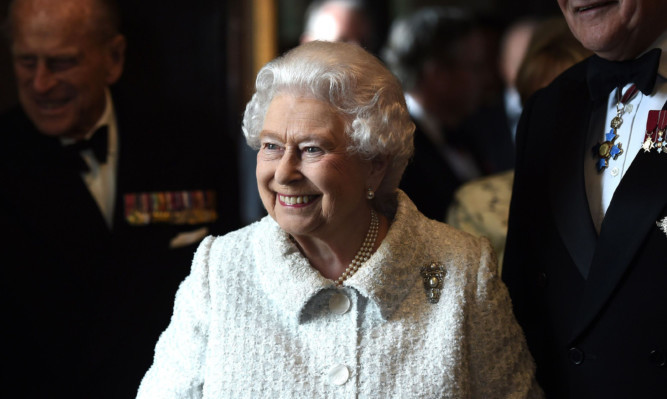
The Queen will lead celebrations on Monday to celebrate the 800th anniversary of Magna Carta in front of an audience of thousands.
The monarch and senior royals including the Duke of Edinburgh, the Duke of Cambridge and the Princess Royal will lead commemorations at Runnymede, where the historic legal document was sealed by King John in 1215.
Although just three of its clauses remain law in the UK, the document set a precedent that saw it lend influence to later works domestically and abroad, including the US Constitution and the Bill of Rights, and the post Second World War UN Universal Declaration of Human Rights.
Monday’s international event in Surrey will include speeches, musical performances and the rededication of the American Bar Association’s Magna Carta Memorial.
A new installation by artist Hew Locke will be also be unveiled on the meadow.
The Jurors is inspired by the 39th clause of Magna Carta, which gives the right to a jury trial, the artist said. In a video on an art website he said it was a “great honour” to be chosen to produce the piece by the National Trust, which owns the site, and Surrey County Council.
“The nature of the site, I mean, this is a unique site. Many aspects of modern democracy have come out of this site,” he added.
Though more later versions remain, just four known copies of the original Magna Carta (Great Charter) exist today, from an estimated 13 that were made.
Two are held by the British Library, with Salisbury Cathedral and Lincoln Cathedral holding the others. They are written in Latin on sheepskin.
The Queen will lead commemorations at Runnymede in her role as monarch and also as patron of the Magna Carta Trust, which has organised a series of anniversary events throughout the year.
In February she hosted a Magna Carta reception at Buckingham Palace, where guests included MPs, historians and senior figures from the legal profession from around the world.
Claire Breay, lead curator of medieval and earlier manuscripts at the British Library, was one of those who met the Queen and will be at Runnymede on Monday.
Dr Breay, who curated the library’s ongoing Magna Carta: Law, Liberty, Legacy exhibition, said: “The most important thing about Magna Carta is that it established that the king was subject to the rule of law.
“Of the clauses in Magna Carta on the statute book, only three are still valid today because all the rest have been repealed in the 19th and 20th centuries.
“But one of those three clauses is the one that is really at the heart of Magna Carta’s enduring fame and legacy. That is the one that says no free man should be seized or imprisoned or stripped of his rights or outlawed or exiled except by the judgment of his equals or by the law of the land. This really famous clause is at the heart of Magna Carta’s fame.”

Enjoy the convenience of having The Sunday Post delivered as a digital ePaper straight to your smartphone, tablet or computer.
Subscribe for only £5.49 a month and enjoy all the benefits of the printed paper as a digital replica.
Subscribe